Cells provides S3 api to interact with data. The action upload/download with curl is divided into steps:
1. Get jwt
2. Upload/Download
You can use following bash file:
./cells-download.sh CELL_IP:PORT USER PASSWORD CLIENT_SECRET FILENAME WORKSPACE_SLUG/PATH NEW_NAME_AFTTER_DOWNLOAD
./cells-upload.sh CELL_IP:PORT USER PASSWORD CLIENT_SECRET ABS_PATH_FILE NEW_NAME WORKSPACE_SLUG/PATH
CLIENT_SECRET is found in /home/pydio/.config/pydio/cells/pydio.json >> dex >> staticClients >> Secret:
cells-download.sh
=============================
#!/bin/bash
HOST=$1
CELLS_FRONT="cells-front"
CELLS_FRONT_PWD=$4
ADMIN_NAME=$2
ADMIN_PWD=$3
FILE=$5
DEST=$6
NEW_NAME=$7
AUTH_STRING=$(echo cells-front:$CELLS_FRONT_PWD | base64)
AUTH_STRING=${AUTH_STRING::-4}
JWT=$(curl -s --request POST \
--url http://$HOST/auth/dex/token \
--header "Authorization: Basic $AUTH_STRING" \
--header 'Cache-Control: no-cache' \
--header 'Content-Type: application/x-www-form-urlencoded' \
--data "grant_type=password&username=$ADMIN_NAME&password=$ADMIN_PWD&scope=email%20profile%20pydio%20offline&nonce=123abcsfsdfdd" | jq '.id_token')
JWT=$(echo $JWT | sed "s/\"//g")
#!/bin/bash -e
#
# Copyright 2014 Tony Burns
#
# Licensed under the Apache License, Version 2.0 (the "License");
# you may not use this file except in compliance with the License.
# You may obtain a copy of the License at
#
# http://www.apache.org/licenses/LICENSE-2.0
#
# Unless required by applicable law or agreed to in writing, software
# distributed under the License is distributed on an "AS IS" BASIS,
# WITHOUT WARRANTIES OR CONDITIONS OF ANY KIND, either express or implied.
# See the License for the specific language governing permissions and
# limitations under the License.
#
# Upload a file to AWS S3.
file="${5}"
bucket="io"
prefix="io/$DEST"
region="us-east-1"
timestamp=$(date -u "+%Y-%m-%d %H:%M:%S")
content_type="application/octet-stream"
#signed_headers="date;host;x-amz-acl;x-amz-content-sha256;x-amz-date"
signed_headers="host;x-amz-content-sha256;x-amz-date"
if [[ $(uname) == "Darwin" ]]; then
iso_timestamp=$(date -ujf "%Y-%m-%d %H:%M:%S" "${timestamp}" "+%Y%m%dT%H%M%SZ")
date_scope=$(date -ujf "%Y-%m-%d %H:%M:%S" "${timestamp}" "+%Y%m%d")
date_header=$(date -ujf "%Y-%m-%d %H:%M:%S" "${timestamp}" "+%a, %d %h %Y %T %Z")
else
iso_timestamp=$(date -ud "${timestamp}" "+%Y%m%dT%H%M%SZ")
date_scope=$(date -ud "${timestamp}" "+%Y%m%d")
date_header=$(date -ud "${timestamp}" "+%a, %d %h %Y %T %Z")
fi
payload_hash() {
# empty string
echo "e3b0c44298fc1c149afbf4c8996fb92427ae41e4649b934ca495991b7852b855"
}
canonical_request() {
echo "GET"
echo "/${prefix}/${file}"
echo ""
echo "host:$HOST"
echo "x-amz-content-sha256:$(payload_hash)"
echo "x-amz-date:${iso_timestamp}"
echo ""
echo "${signed_headers}"
printf "$(payload_hash)"
}
canonical_request_hash() {
local output=$(canonical_request | shasum -a 256)
echo "${output%% *}"
}
string_to_sign() {
echo "AWS4-HMAC-SHA256"
echo "${iso_timestamp}"
echo "${date_scope}/${region}/s3/aws4_request"
printf "$(canonical_request_hash)"
}
AWS_SECRET_ACCESS_KEY="gatewaysecret"
signature_key() {
local secret=$(printf "AWS4${AWS_SECRET_ACCESS_KEY}" | hex_key)
local date_key=$(printf ${date_scope} | hmac_sha256 "${secret}" | hex_key)
local region_key=$(printf ${region} | hmac_sha256 "${date_key}" | hex_key)
local service_key=$(printf "s3" | hmac_sha256 "${region_key}" | hex_key)
printf "aws4_request" | hmac_sha256 "${service_key}" | hex_key
}
hex_key() {
xxd -p -c 256
}
hmac_sha256() {
local hexkey=$1
openssl dgst -binary -sha256 -mac HMAC -macopt hexkey:${hexkey}
}
signature() {
string_to_sign | hmac_sha256 $(signature_key) | hex_key | sed "s/^.* //"
}
curl \
-H "Authorization: AWS4-HMAC-SHA256 Credential=${JWT}/${date_scope}/${region}/s3/aws4_request,SignedHeaders=${signed_headers},Signature=$(signature)" \
-H "Host: $HOST" \
-H "Date: ${date_header}" \
-H "x-amz-acl: public-read" \
-H 'Content-Type: application/octet-stream' \
-H "x-amz-content-sha256: $(payload_hash)" \
-H "x-amz-date: ${iso_timestamp}" \
"http://$HOST/${prefix}/${file}" --output $NEW_NAME
=============================
cells-upload.sh
=============================
#!/bin/bash
HOST=$1
CELLS_FRONT="cells-front"
CELLS_FRONT_PWD=$4
ADMIN_NAME=$2
ADMIN_PWD=$3
FILE=$5
NEW_NAME=$6
DEST=$7
AUTH_STRING=$(echo cells-front:$CELLS_FRONT_PWD | base64)
AUTH_STRING=${AUTH_STRING::-4}
JWT=$(curl -s --request POST \
--url http://$HOST/auth/dex/token \
--header "Authorization: Basic $AUTH_STRING" \
--header 'Cache-Control: no-cache' \
--header 'Content-Type: application/x-www-form-urlencoded' \
--data "grant_type=password&username=$ADMIN_NAME&password=$ADMIN_PWD&scope=email%20profile%20pydio%20offline&nonce=123abcsfsdfdd" | jq '.id_token')
JWT=$(echo $JWT | sed "s/\"//g")
#!/bin/bash -e
#
# Copyright 2014 Tony Burns
#
# Licensed under the Apache License, Version 2.0 (the "License");
# you may not use this file except in compliance with the License.
# You may obtain a copy of the License at
#
# http://www.apache.org/licenses/LICENSE-2.0
#
# Unless required by applicable law or agreed to in writing, software
# distributed under the License is distributed on an "AS IS" BASIS,
# WITHOUT WARRANTIES OR CONDITIONS OF ANY KIND, either express or implied.
# See the License for the specific language governing permissions and
# limitations under the License.
#
# Upload a file to AWS S3.
file="${5}"
bucket="io"
prefix="io/$DEST"
region="us-east-1"
timestamp=$(date -u "+%Y-%m-%d %H:%M:%S")
content_type="application/octet-stream"
#signed_headers="date;host;x-amz-acl;x-amz-content-sha256;x-amz-date"
signed_headers="content-type;host;x-amz-acl;x-amz-content-sha256;x-amz-date"
if [[ $(uname) == "Darwin" ]]; then
iso_timestamp=$(date -ujf "%Y-%m-%d %H:%M:%S" "${timestamp}" "+%Y%m%dT%H%M%SZ")
date_scope=$(date -ujf "%Y-%m-%d %H:%M:%S" "${timestamp}" "+%Y%m%d")
date_header=$(date -ujf "%Y-%m-%d %H:%M:%S" "${timestamp}" "+%a, %d %h %Y %T %Z")
else
iso_timestamp=$(date -ud "${timestamp}" "+%Y%m%dT%H%M%SZ")
date_scope=$(date -ud "${timestamp}" "+%Y%m%d")
date_header=$(date -ud "${timestamp}" "+%a, %d %h %Y %T %Z")
fi
payload_hash() {
local output=$(shasum -ba 256 "$file")
echo "${output%% *}"
}
canonical_request() {
echo "PUT"
echo "/${prefix}/${NEW_NAME}"
echo ""
echo "content-type:${content_type}"
echo "host:$HOST"
echo "x-amz-acl:public-read"
echo "x-amz-content-sha256:$(payload_hash)"
echo "x-amz-date:${iso_timestamp}"
echo ""
echo "${signed_headers}"
printf "$(payload_hash)"
}
canonical_request_hash() {
local output=$(canonical_request | shasum -a 256)
echo "${output%% *}"
}
string_to_sign() {
echo "AWS4-HMAC-SHA256"
echo "${iso_timestamp}"
echo "${date_scope}/${region}/s3/aws4_request"
printf "$(canonical_request_hash)"
}
AWS_SECRET_ACCESS_KEY="gatewaysecret"
signature_key() {
local secret=$(printf "AWS4${AWS_SECRET_ACCESS_KEY}" | hex_key)
local date_key=$(printf ${date_scope} | hmac_sha256 "${secret}" | hex_key)
local region_key=$(printf ${region} | hmac_sha256 "${date_key}" | hex_key)
local service_key=$(printf "s3" | hmac_sha256 "${region_key}" | hex_key)
printf "aws4_request" | hmac_sha256 "${service_key}" | hex_key
}
hex_key() {
xxd -p -c 256
}
hmac_sha256() {
local hexkey=$1
openssl dgst -binary -sha256 -mac HMAC -macopt hexkey:${hexkey}
}
signature() {
string_to_sign | hmac_sha256 $(signature_key) | hex_key | sed "s/^.* //"
}
curl \
-T "${file}" \
-H "Authorization: AWS4-HMAC-SHA256 Credential=${JWT}/${date_scope}/${region}/s3/aws4_request,SignedHeaders=${signed_headers},Signature=$(signature)" \
-H "Host: $HOST" \
-H "Date: ${date_header}" \
-H "x-amz-acl: public-read" \
-H 'Content-Type: application/octet-stream' \
-H "x-amz-content-sha256: $(payload_hash)" \
-H "x-amz-date: ${iso_timestamp}" \
"http://$HOST/${prefix}/${NEW_NAME}"

